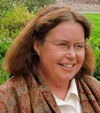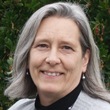|
Winter Quarter 2013
|
||||||||||||||||||||||||||||||||||||||||||||||||||||||
Tuesday, February 5th
Abstract: Stanford's Office of Accessible Education (OAE) provides a wide array of accommodations, support services, auxiliary aids, and services to remove barriers to full participation in the life of the University. It offers services for students with disabilities at both the undergraduate and graduate levels. In reaching its determinations about appropriate accommodations, the OAE considers factors such as the documentation from professionals specializing in the area of the student’s diagnosed disability, the student’s functional limitations, and the student’s input and accommodation history in regard to particular needs and limitations. The OAE then works with the student and relevant faculty and staff through an interactive process designed to achieve an accommodation that meets the needs of all parties. The OAE also works with faculty and many other Departments, such as Bing Overseas Studies and the office of Diversity and Access to raise awareness and understanding of disability-related issues as they intersect with Stanford life. Biosketch: Teri Adams is an Associate Director of the Office of Accessible Education. The OAE is committed to providing Stanford students with disabilities the support and services needed to allow them the opportunity to participate in the rich and varied life at Stanford University. In addition to academic accommodations for students, Teri also expedites all housing assignments and facilities requests related to disability.
Abstract: Robin will lead the class in a Small Group Evaluation to get student feedback on the course so far. During the last twenty minutes of the class, she will divide the class into small groups. Each group will arrive on a consensus on what is contributing to their learning in the class, what needs improvement, and what students themselves can do to improve the course. She will summarize these responses, seeking to make them as specific as possible and to resolve or clarify contradictions among groups, and will presents them to the course instructor in a subsequent private consultation. This process benefits the course in several ways. Because students actively discuss and debate their ideas, the process tends to focus student comments on high priority issues and helps distinguish these from outlier - or low consensus - comments. Instructors who have used the method find the resulting information to be unusually rich, specific, and readily translatable into productive course changes. Biosketch: Robyn Wright Dunbar received a BA in geology from Trinity University followed by an MA in Antarctic marine geology and PhD in geology from Rice University. During the course of her graduate work, Robyn participated in five Antarctic research cruises and holds the distinction of being one of the first two women to conduct Antarctic marine research aboard a US Coast Guard icebreaker. By the time she received her PhD, Robyn’s research, her career, and her soul had shifted to the ancient rock record and the spectacular geology of the Four Corners area. Robyn was a faculty member at the University of New Mexico and at Rice University before her 1998 arrival at Stanford as Consulting Associate Professor of Geological and Environmental Sciences. In 1999 Robyn joined Stanford’s Center for Teaching and Learning as its Assistant Director for Science and Engineering and in 2000 became CTL's Senior Associate Director. At CTL she consults with individual faculty and graduate students, as well as with academic departments, to support a variety of teaching and curricular objectives. She is particularly active in promoting understanding about how people learn and how to include inquiry-based science and engineering teaching practices in higher education. Beyond her work at Stanford, Robyn has made contributions to science pedagogy and future faculty preparation through her role as a leader in the summer institute Preparing for an Academic Career, part of the On the Cutting Edge programs for geosciences faculty, postdoctoral fellows, and graduate students. She has received recognition for outstanding teaching as both a teaching assistant and as a faculty member, and although her lectures are typically heard by classes smaller than 25, she set her crowd record (>850!) when invited to give the Orientation Week Faculty Address, Lentil Stew and Other Important Things on Rice, to the Rice University class of 2001.
|
||||||||||||||||||||||||||||||||||||||||||||||||||||||
|
||||||||||||||||||||||||||||||||||||||||||||||||||||||

